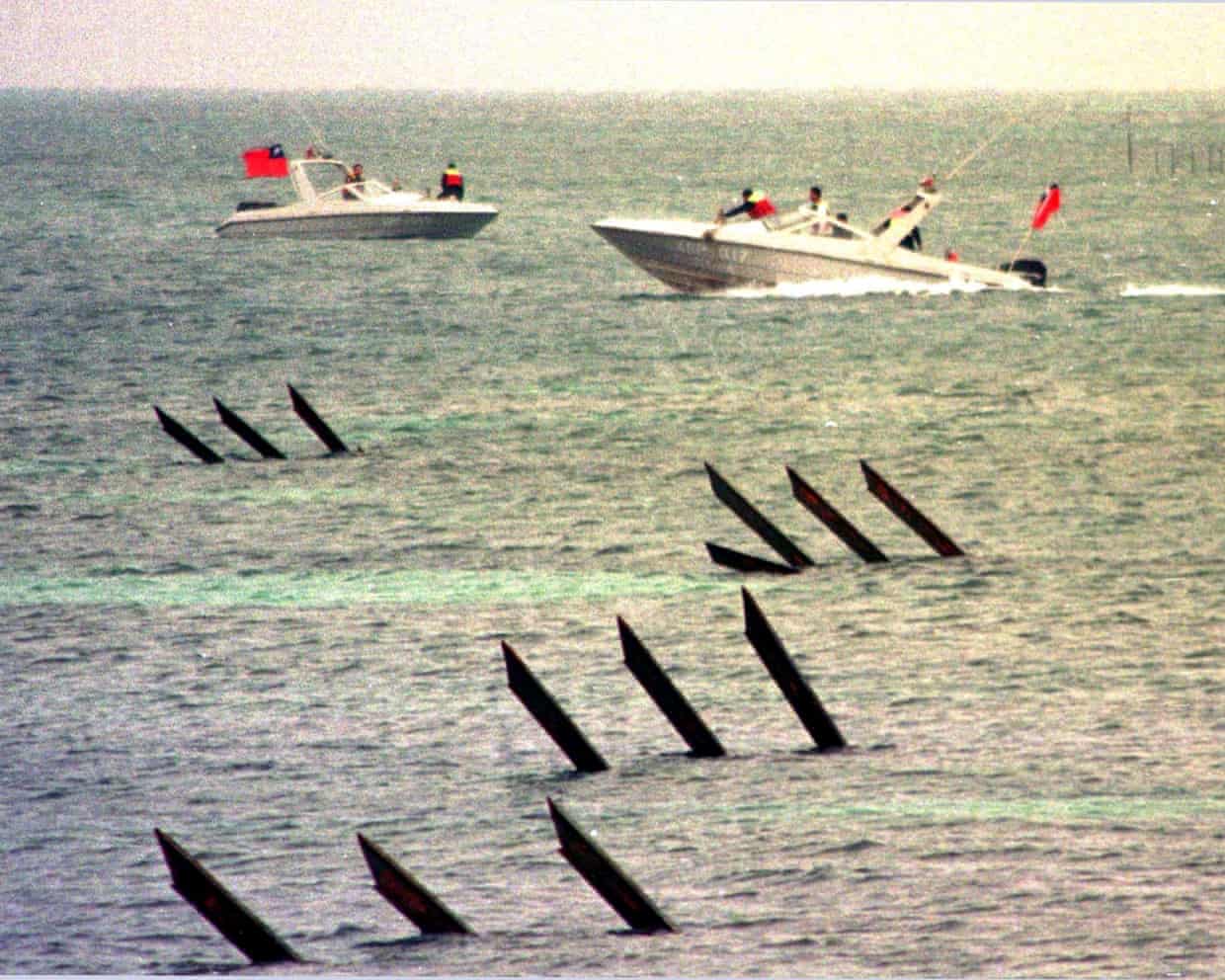Business
Taiwan Demands China Halt Oil Drilling in Exclusive Economic Zone

Taiwan has formally accused China of violating international law by conducting oil and gas drilling activities within its exclusive economic zone (EEZ), demanding an immediate cessation of these operations. The allegations were made by the office of Taiwan’s President, Lai Ching-te, following reports that multiple Chinese oil rigs and vessels were detected near the contested Pratas Islands, which Taiwan administers.
A report from the Jamestown Foundation, a U.S.-based think tank, revealed that these Chinese assets, owned by the state-run China National Offshore Oil Corporation (CNOOC), have been operating within Taiwan’s EEZ for as long as five years without prior notice. The Guardian confirmed the presence of most of these vessels last week through commercial maritime tracking systems.
Taiwan’s presidential office spokesperson, Karen Kuo, called on China to clarify its actions and to “immediately cease illegal deployment and exploitation activities in the economic waters of countries in the region, including Taiwan.” Kuo emphasized that these activities not only breach international legal norms like the United Nations Convention on the Law of the Sea (UNCLOS), but also threaten regional stability.
Taiwan’s defense and security agencies are aware of the situation and are reportedly conducting a thorough review of the activities in question. Analysts suggest that China’s drilling operations are part of a broader strategy to assert control over disputed territories, particularly in the South China Sea and around Taiwan, which Beijing views as a breakaway province.
The Jamestown Foundation report cautioned that Taiwan’s lack of response over the past five years could lead to a normalization of such incursions, potentially encouraging further violations of its sovereignty. Experts underline that Taiwan’s political status complicates its ability to respond effectively, as it is not a party to UNCLOS or its arbitration mechanisms.
William Yang, a senior northeast Asia analyst with the International Crisis Group, commented that Taiwan must first clarify which agency is responsible for addressing these activities. He noted the need for a coordinated diplomatic and law enforcement response, including enhanced coastguard patrols. “Without these initial steps, it will continue to struggle to effectively address these challenges,” Yang stated.
Taiwan’s Ministry of Defense is aware of the operations near the Pratas Islands, referred to as the Dongsha Islands in Taiwan, and is prepared to assist the coastguard as necessary. Kuo indicated that Taiwan would collaborate with relevant regional countries to formulate joint responses to these provocations.
In recent months, similar concerns have been raised by Japan regarding Chinese drilling activities in its EEZ, with Vietnam and South Korea also voicing complaints. Yang suggested that if Taiwan can effectively link these Chinese incursions to broader regional challenges, it could foster more significant diplomatic engagement from countries with greater resources and leverage.
The ongoing tension surrounding these activities underscores the delicate balance of power in the region and the complexities of international maritime law. Taiwan’s proactive stance may serve as a crucial step in addressing these ongoing challenges while seeking to uphold its sovereignty in the face of external pressures.
-

 Business5 months ago
Business5 months agoKenvue Dismisses CEO Thibaut Mongon as Strategic Review Advances
-

 Lifestyle4 months ago
Lifestyle4 months agoHumanism Camp Engages 250 Youths in Summer Fest 2025
-

 Sports4 months ago
Sports4 months agoDe Minaur Triumphs at Washington Open After Thrilling Comeback
-

 Sports5 months ago
Sports5 months agoTupou and Daugunu Join First Nations Squad for Lions Clash
-

 Top Stories5 months ago
Top Stories5 months agoColombian Senator Miguel Uribe Shows Signs of Recovery After Attack
-

 World5 months ago
World5 months agoASEAN Gears Up for Historic Joint Meeting of Foreign and Economic Ministers
-

 Health4 months ago
Health4 months agoNew Study Challenges Assumptions About Aging and Inflammation
-

 Business5 months ago
Business5 months agoOil Prices Surge Following New EU Sanctions on Russia
-

 Entertainment4 months ago
Entertainment4 months agoDetaşe-Sabah Violin Ensemble Captivates at Gabala Music Festival
-

 Entertainment4 months ago
Entertainment4 months agoBaku Metro Extends Hours for Justin Timberlake Concert
-

 Top Stories5 months ago
Top Stories5 months agoRethinking Singapore’s F&B Regulations Amid Business Closures
-

 Business5 months ago
Business5 months agoU.S. House Approves Stablecoin Bill, Sends to Trump for Signature









